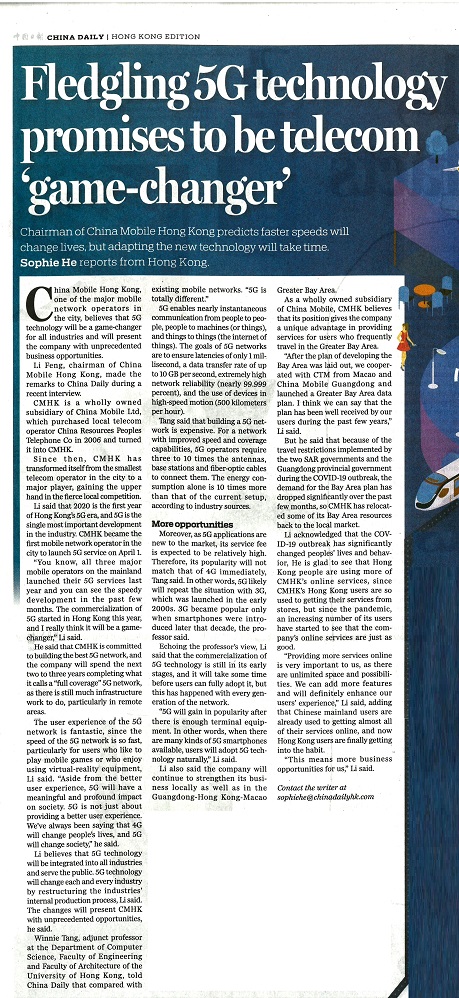網上版請按此

Fledgling 5G technology promises to be telecom 'game-changer'
Winnie Tang, adjunct professor at the Department of Computer Science, Faculty of Engineering and Faculty of Architecture of the University of Hong Kong, told China Daily that compared with existing mobile networks. "5G is totally different."
5G enables nearly instantaneous communication from people to people, people to machines (or things), and things to things (the internet of things). The goals of 5G networks are to ensure latencies of only 1 millisecond, a data transfer rate of up to 10 GB per second, extremely high network reliability (nearly 99.999 percent), and the use of devices in high-speed motion (500 kilometers per hour).
Tang said that building a 5G network is expensive. For a network with improved speed and coverage capabilities, 5G operators require three to 10 times the antennas, base stations and fiber-optic cables to connect them. The energy consumption alone is 10 times more than that of the current setup, according to industry sources.
Moreover, as 5G applications are new to the market, its service fee is expected to be relatively high. Therefore, its popularity will not match that of 4G immediately, Tang said. In other words, 5G likely will repeat the situation with 3G, which was launched in the early 2000s. 3G became popular only when smartphones were introduced later that decade, the professor said.